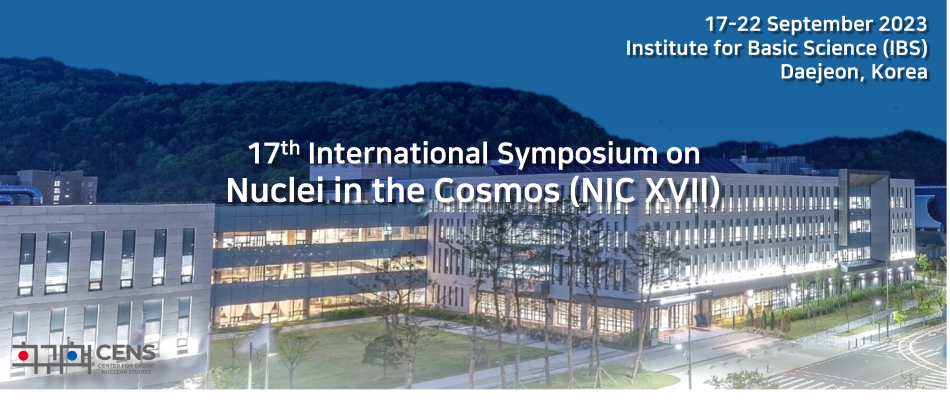Speaker
Description
The hadronic deexcitation of the Hoyle state in 12C induced by inelastic scatterings of particles can enhance the triple-alpha reaction and the resultant accumulated seed nuclei prevent the synthesis of the heavier elements [1]. Quite recently, neutron-induced deexcitation cross sections were measured experimentally and this effect turns out to be less significant [2]. It therefore is even more interest to explore if the protons or alpha-particles could make a significant effect on the explosive nucleosynthesis in proton-rich environment. We study the impact of such particle-induced Hoyle state deexcitation on the νp-process nucleosynthesis in proton-rich ν-driven winds of core-collapse supernovae (CCSNe). We find that the productions of p-nuclei such as 92,94Mo and 96,98Ru are suppressed due to the effect of Hoyle state deexcitation in the wind models of ordinary CCSNe. On the other hand, we find also that these isotopic abundances are enhanced in explosive nucleosynthesis in an energetic hypernova (HN) wind models [3]. We then apply our new HN nucleosynthesis results to the Galactic chemical evolution of 92,94Mo and 96,98Ru, resulting in an interesting fact that the HN νp-process can enhance the calculated solar isotopic fractions of these p-nuclei, whose isotopic fractions are 1-2 orders of magnitude larger than the ordinary p-nuclei, regardless of the particle-induced Hoyle state deexcitation [3].
[1] S. Jin, L. F. Roberts, S. M. Austin & H. Schatz, Nature 588 (2020), 57.
[2] J. Bishop, C. E. Parker, G. V. Rogachev, et al., Nature Comm. 13 (2022), 2151.
[3] H. Sasaki, Y. Yamazaki, T. Kajino & G. J. Mathews, (2023) submitted.

